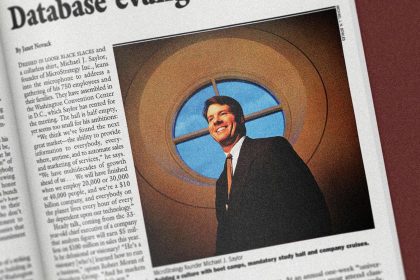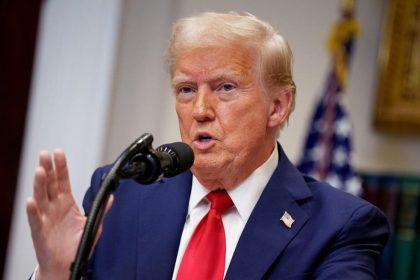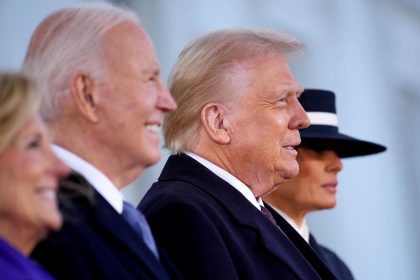Lawyers often disagree with the rulings of judges. That has been true since there were lawyers and judges. Usually, the lawyer’s remedy is to take an appeal from the judge’s ruling, which basically asks an independent body to take a second look. Such appeals result in the appellate opinions of which we are all so familiar. Once in a while, however, a lawyer will decide that a judge’s particular ruling was not made in good faith, but instead the judge is making a decision for some improper reason — which cannot be proven — such as that the judge was colluding with adverse parties in the case. Sometimes, the conclusion that the judge was engaged in wrongful conduct spins off into dark and conspiratorial thinking by the involved lawyer that finally goes off the crazy rails. I’ve known a few lawyers who have succumbed to this phenomenon, and it isn’t pretty.
This brings us to two Notices of Disciplinary Charges filed by the State Bar of California against attorney Michael Jacob Libman, in Case No. SBC-24-O-30064 (Cal. State Bar Court, L.A., March 6, 2024), and Case No. SBC-24-O-30284 (Cal. State Bar Court, L.A., June 6, 2024). At the outset, it must be noted that what follows are mere allegations, so far unproven, and the final findings of the State Bar Court may ultimately end up completely contrary to what the California Bar has alleged.
The facts take us to the Department of Water & Power (“DWP”) of the City of Los Angeles. In 2013, the City of Los Angeles began replacing its DWP billing system for residents with a new one supervised by PricewaterhouseCoopers (“PWC”). The rollout of this new system was a disaster. Residents were underbilled, overbilled, the right credits were not given, and so forth. Ultimately, the City of Los Angeles lost hundreds of millions in revenue due to the billing system. Moreover, the confusion was so bad that the City of Los Angeles struggled to address residents complaints. This led to class actions being filed.
In early 2014, Antwon Jones, a Los Angeles utility ratepayer, retained a New York attorney by the name of Paul Paradis to represent Jones in a lawsuit against PricewaterhouseCoopers. By December of that year, Paradis and a California attorney by the name of Paul Kiesel met with Tom Peters, the Chief of the Civil Litigation Branch of the City of Los Angeles, about obtaining the City’s assistance in the Jones litigation against PWC.
Of course, the City of Los Angeles blamed PWC for this mess and wanted to sue PWC as well. Apparently impressed by Paradis and Kiesel, the City of Los Angeles in 2015 hired Paradis and Kiesel to represent the City of Los Angeles against PWC. So, Paradis ended up being counsel in two lawsuits: First, a class action by Jones and other ratepayers against PWC; and, second, the City of Los Angeles’ lawsuit against PWC.
At this point, The City of Los Angeles’ strategy was for Paradis and Kiesel to convince all the class action lawyers who were suing the City of Los Angeles and instead join the class action against PWC. By February of 2015, however, the City of Los Angeles decided for whatever reason that it did not want to be involved with the class action against PWC. At this point, another attorney for the City of Los Angeles directed Paradis and Kiesel to find new counsel who was friendly to the City of Los Angeles to represent Jones as the lead plaintiff in a class action against the City of Los Angeles, with the idea being that the case would be quickly settled so that everybody could then turn their attention to PWC.
Thus, Paradis and Kiesel recruited the subject of our story, a California attorney by the name of Michael Jacob Libman, and an Ohio attorney by the name of Jack Landskroner, to represent a class of ratepayers (including Jones) suing the City of Los Angeles itself. And now things start to go off into the weeds as it relates to Paradis.
When Paradis recruited Landskroner, Paradis told Landskroner that the City of Los Angeles wanted the new class to settle on terms that were desired by the City of Los Angeles. Also, Paradis told Landskroner that he (Paradis) would do most of the work behind the scenes, but when the case settled that Landskroner would pay Paradis a 20% kickback for referring the case to Landskroner, who agreed to this deal.
But Landskroner was an Ohio attorney who was not admitted to practice law in California without local counsel. Thus, Kiesel recruited the subject of our story, Michael J. Libman, to act as local counsel and work with Landskroner to represent the Jones class action plaintiffs.
Eventually, there got to be five class action ratepayer lawsuits against the City of Los Angeles. The City of Los Angeles negotiated with the counsel in four of these other lawsuits to dismiss their complaints, leaving only the Jones class action remaining against the City of Los Angeles.
So, to zoom out for a second to put what its going on here into some perspective, Paradis was representing the City of Los Angeles against PWC, while at the same time that he was working behind-the-scenes for the Jones class action plaintiffs against the City of Los Angeles. This was an obvious conflict-of-interest. Further, Libman knew that Paradis was playing both sides of the fence.
On March 6, 2015, the Paradis and Kiesel filed the City of Los Angeles’ lawsuit against PWC and the two would represent the City of Los Angeles in that litigation for the next four years.
Meanwhile, Paradis (with the assistance of Kiesel) continued to run the Jones class action against the City of Los Angeles behind-the-scenes. Paradis prepared a notice of the required administrative claims against the City, and Kiesel sent it to Libman with the instructions for Libman to put it on his (Libman’s) attorney letterhead. Paradise also drafted the Jones class action complaint and sent it to Landskroner, who then sent it on to Libman for filing; Libman asked Kiesel to reimburse him for the filing fee.
Paradis also directed Landskroner to file an amended complaint in the Jones class action which included factual allegations that were meant to aid the City of Los Angeles’ case against PWC. These factual allegations, however, also had the effect of increasing the settlement amount to be paid to the Jones class action plaintiffs (and thereby increased the amount that Paradis would receive pursuant to his 20% kickback).
Finally, Paradis drafted and sent to Landskroner the confidential class action settlement proposal to be sent to the City of Los Angeles. When the Jones class action did settle, Paradis drafted the settlement documents and sent them to Landskroner and Libman for the latter two sign and deliver to the City. In 2017, all the class action cases against the City of Los Angeles settled, with the City paying a little over $19 million in attorney fees and costs to the class action lawyers. Paradis’ 20% presumably would have been $3.8 million of this amount.
For his share in serving as California local counsel, Libman received a little over $1.65 million in fees. Libman justified his fees with a sworn declaration that, as later alleged by the state Bar, contained materially false and misleading statements. These allegedly false representation included that Libman had “co-counseled and co-ventured” with the Kingsley & Kingsley law firm in numerous other successful class actions in 32 identified cases, though Libman had not been a part of those cases. Libman also claimed close to 70 hours in his attorney’s time for drafting the Complaint in the Jones class action case (although, as we have seen, that Complaint was drafted by Paradis).
Two years later, in 2019, the aforementioned Paradis conflict was finally revealed. To make sure that the Jones v. City of Los Angeles class action settlement was fair, reasonable and adequate, the court (Judge Berle) appointed a new lawyer, Brian S. Kabateck as the new counsel for the class. Among other things, Judge Berle also ordered Libman to produce an accounting of all the funds Libman had received for his work in the Jones class action, as well as Libman’s detailed time records for his work on the case and all documents he had drafted.
Libman failed to comply with Judge Berle’s order. Kabateck then deposed Libman and Libman objected to and refused to answer questions about his bank, the identity of his accountant, his previous work on class actions with the Kingsley & Kingsley law firm, or the last time that he spoke wit Paradis.
Judge Berle overruled Libman’s objections and ordered him to answer the questions, but Libman still refused to answer the questions. Judge Berle then held Libman in contempt of court, finding that Libman had willfully disobeyed the court’s orders. Additionally, Judge Berle ordered Libman to pay $44,012.50 in attorney fees to Kabateck.
Skipping ahead to 2021, apparently on the motion of Kabateck, Judge Berle entered an order that Libman disgorge the $1.65 million in attorney fees that he had received in the Jones v. City of Los Angeles case. Libman appealed Judge Berle’s order, but did not post an appellate bond such that post-judgment enforcement was stayed pending the appeal. Thus, Kabateck started to chase Libman for the $1.65 million disgorgement.
Judge Berle next issued an Assignment Order which required Libman to pay over all his attorney fees for all his work in other cases until the disgorgement order was satisfied. Libman was also ordered to identify all of his pending cases for his clients and cases that he had recently settled for his clients, and to file an updated list of all those cases every 60 days until the disgorgement order was satisfied. Libman did not comply with this order.
Kabateck then set a hearing for Libman to appear for a debtor’s examination, which was held on January 11, 2023. At his debtor’s examination, Libman again refused to answer questions and Judge Berle again ordered him to answer the questions. Ultimately, Libman refused to answer any questions other than his name, home address and office address.
Once again, Judge Berle held Libman in contempt of court for refusing to supply the list of his clients or answer questions at his debtor’s examination. Judge Berle on August 21, 2023, fined Libman $1,000 for each act of contempt and additionally imposed a daily fine of $700 against Libman until he complied with the court’s orders. Even then, Libman did not comply with the court’s orders.
All the foregoing lead to the State Bar’s first Complaint against Libman which carried seven counts, including two counts for conflicts of interest, two counts for failure to obey court orders, and three counts for moral turpitude.
As crazy as all this was, it now gets much, much crazier.
At some point, Libman came to conclusion that Kabateck and Judge Berle were colluding against him. Libman wanted to prove this, so he started developing a plan to hack into the personal e-mail and phone accounts of Kabateck and Judge Berle. To further this plan, Libman sought and obtained Paradis’ agreement to help Libman hack the e-mail and phone accounts.
What Libman did not know was that by this time Paradis was working with the FBI as a confidential informant and recording his calls and meetings with Libman. So from here on out, at least some of the facts are presumably documented by these recordings.
In March of 2020, Libman told Paradis that Judge Berle was “dirty” and that Kabateck should not have been the selection for the replacement class counsel. Libman further told Paradis that Libman intended to expose the corruption of Kabateck and Judge Berle. Libman asked Paradis to split the costs of hiring two computer hackers in Israel to get the accounts of Kabateck and Judge Berle, and that Libman would set up a meeting with those hackers and Paradis. Libman also asked the Paradis use an encrypted electronic application (ironically, called “Wire”) for all his communications with Libman.
A few days later, Libman and Paradis spoke again by phone. In this case, Libman lamented his inability to easily purchase firearms in California, and requested that Paradis purchase in Arizona for Libman three AR rifles and three semi-automatic shotguns.
On March 31, 2020, Libman told Paradis by telephone that the meeting with the Israeli hackers needed to be either face-to-face or on a secure line. Paradis told Libman that he would obtain encrypted burner (one use) phones for this purpose.
Several days later, on April 4, 2020, Paradis met Libman at a hotel room where Paradis delivered the burner phone to Libman, along with instructions as to its use. Libman told Paradis that the introduction to the Israeli hackers would be made, and the two discussed not overpaying the hackers. Libman also at this time told Paradis that he had acquired a semi-automatic 9mm “machine gun with an extended clip”.
On August 8, 2020, Paradis and Libman again met in a hotel room. This time it was for the purpose of contacting the Israeli hacker. Libman told Paradis that he (Libman) had already e-mailed the hacker certain personal information about Kabateck, but that he had been unable to come up with similar information for Judge Berle. At this meeting, Libman revealed that he had already met with the hacker in Israel and the hacker understood what information he needed to obtain. Libman also told Paradis that the hacker needed additional information that was not publicly available and the two (Libman and Paradis) had to obtain that information for the hacker.
Later that same day, Libman used the “WhatsApp” application to contact the hacker in Israel, which Libman knew was affiliated with an Israeli company called “Black Cube”. Libman and Paradis then discussed that the information they had received from the hacker was not helpful since it had been translated by the hacker from Portuguese to English using the Google translator service.
Three days later, on April 11, 2020, Libman and Paradis again spoke by phone and Libman related that he had translated the information provided by the Israeli hacker and found it to be “very extensive”. Libman also indicated that the information came from more than just hacking, but that the hacker also had “human intel on the ground”. Libman also told Paradis that the Israeli hacker was “legit”. Further, Libman told Paradis that it really wasn’t necessary to prove corruption between Kabateck and Judge Berle, but merely creating an appearance of corruption would be enough.
April 12, 2020, was the next day, and Libman sent Paradis a text message containing screenshots of the additional information sought by the Israeli hacker. After a couple of more phone calls (April 14 and April 21) between Libman and Paradis, they finally met again on April 24, 2020, in a hotel room. At this meeting, Libman told Paradis that he (Paradis) needed to get personal and government e-mails for Judge Berle. For his part, Paradis pointed out that if the hacker could not obtain these e-mails then Libman had the wrong hacker for the job. The two then agreed that the hacker should be able to obtain Judge Berle’s personal e-mail address and e-mail content for as far back as 2015, along with the text messages from Judge Berle’s mobile phone. When Libman and Paradis got that information, the two agreed, they would then transmit it anonymously to the U.S. Attorney’s office. Finally, Libman and Paradis talked to the Israeli hacker about his fees for the first stage of the investigation and were told that it would b $70,000.
A week later, on May 1, 2020, Libman and Paradis again spoke by phone and Libman “expressed his desire to evade authorities while hacking the personal email and cell phone of Judge Berle and Kabateck”.
Then, finally, on June 30, 2020, the FBI raided Libman’s home with a search warrant. The Complaint says no more about that.
The State Bar’s second Complaint alleges just a single count of moral turpitude by Libman, but suffice it to say that is a very serious count which can result in disbarment. Again, however, it must be emphasized that these are merely the facts as alleged in the Complaint and thus are no more than allegations. There have been no findings or rulings by the court so far.
ANALYSIS
The allegations here speak for themselves, so I am not going to spend any further time on them. What I do want to talk about is judgment enforcement while an appeal is pending.
Many debtors are shocked to learn that the filing of an appeal in a civil case usually does not stay the enforcement of the judgment while the appeal is pending. Instead, if a debtor does not want to go through post-judgment enforcement proceedings and the liquidation of assets to satisfy the judgment, the debtor must do one of three things: (1) pay the judgment, or at least work out some sort of deal with the judgment creditor; (2) post cash or other assets with the court for the amount of the judgment; or (3) obtain what is known as an appellate bond. The last is the most common and there are insurance and bonding companies which regularly issue these bonds, taking all or some of the debtor’s assets as collateral.
If a debtor pays the judgment but later wins the appeal, the creditor then becomes liable to refund the amount of the judgment to the debtor. If the creditor does not, then the shoe goes on the other foot and the debtor can obtain a judgment against the creditor and pursue judgment enforcement remedies. This is almost never done for the reason that the creditor may waste or attempt to asset protect the money paid in the meantime, thus giving the debtor what amounts to a Pyrrhic victory at least in part. It would almost always be smarter to simply post the amount of the judgment with the court, since at least upon the conclusion of a successful appeal the court clerk would give the money back. But both of these solutions are very rare — in 35 years of practice, I’ve never seen or heard of it being done.
The most common solution for debtors is to obtain an appellate bond, also known as a supersedeas bond that is issued by an insurance company or bonding company that is approved by the court. The way this works is that the debtor pays a small amount for the issuance of the bond and also usually gives collateral in case the appeal is lost. When the case concludes, insurance company or bonding company pays on the bond, then looks to the debtor and the debtor’s assets to make up for the loss. If the company doesn’t pay the creditor voluntarily, the creditor can sue on the bond.
The problem that frequently arises for debtors is that they simply do not have the assets available to pay the judgment or even to give collateral for an appellate bond. In that event, some states have rules which basically state that a creditor must pay what they can pay, and judgment enforcement proceeds are thereafter stayed until the appeal is decided. This is all usually subject to the court’s discretion, particularly as to the amount the debtor must pay, and of course the creditor will be screaming the whole time that the debtor is hiding assets and should instead get an appeal bond if they want to stop enforcement.
Anyway, the facts of this case are pretty interesting and it will be worth watching to see what happens with the bar complaints here, so stay tuned for more.
Read the full article here






